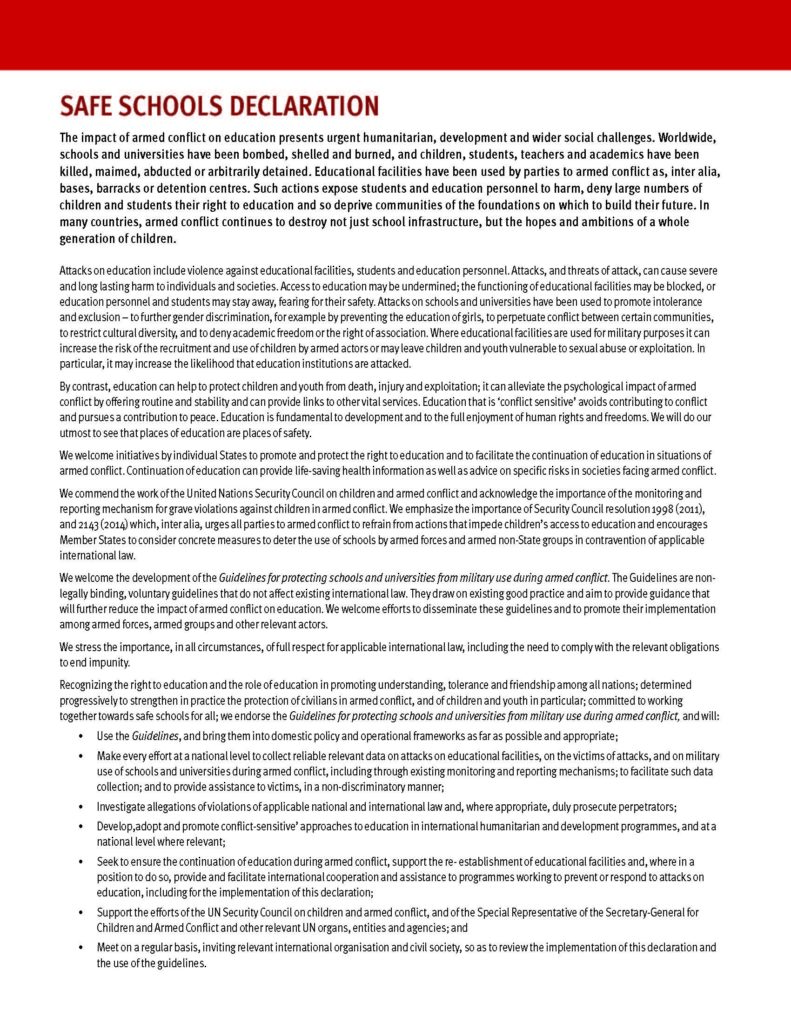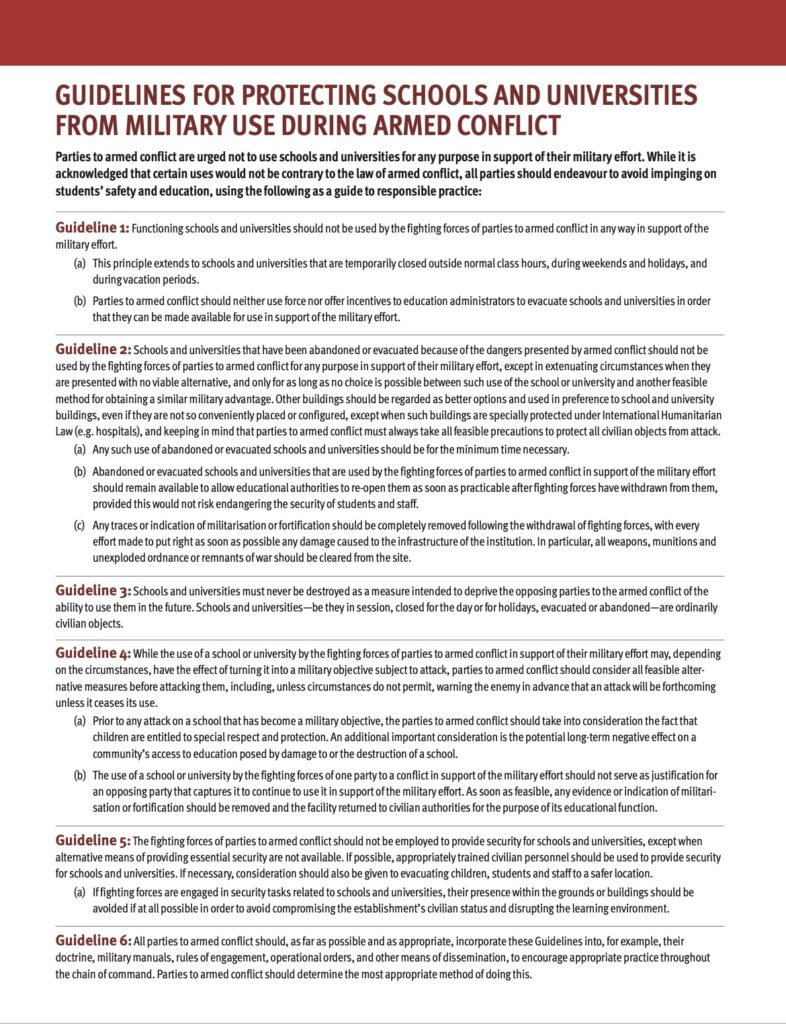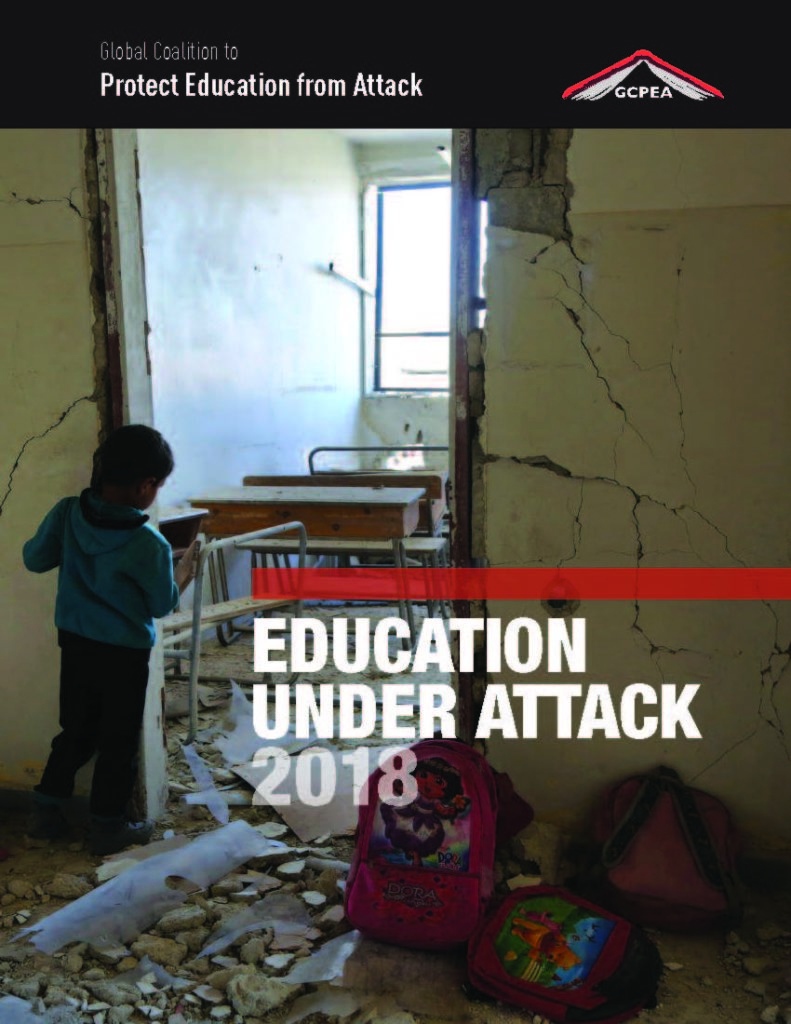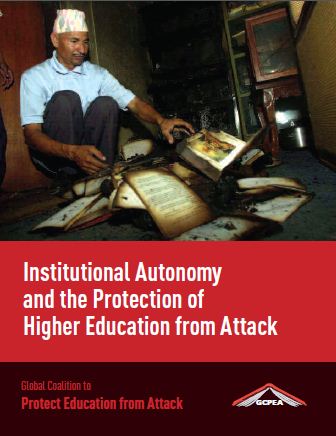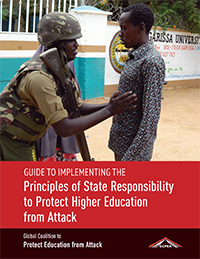Scope of the problem
Attacks on higher education occur when states, opposition groups and other non-state actors view higher education institutions, professors and students as threats to their authority or as a means of gaining influence. When they are unable to control the sector, they often resort to intimidation, coercion and overt violence to block education, silence dissent, and eliminate perceived opponents. Whether directed at whole institutions or individuals, such attacks can have chilling effects on the research, teaching and social functions of higher education, and may serve to warn of spreading repression and risks of open conflict. Unlike most attacks on schools, violent attacks on higher education frequently take place in non-conflict situations – although they do also occur in countries affected by war – and more often involve arbitrary arrest, detention or persecution of particular students and teachers.
During the period 2022-2023 GCPEA monitored and reported on attacks on both tertiary educational facilities and their students and personnel, finding over 360 reported incidents from 2022 to 2023 in 22 countries (view the countries).
Afghanistan, Burkina Faso, Cameroon, Colombia, Democratic Republic of the Congo, Egypt, Ethiopia, India, Iraq, Kenya, Libya, Myanmar, Niger, Nigeria, Pakistan, Palestine, The Philippines, South Sudan, Sudan, Türkiye, Ukraine, and Yemen
Impact of attacks on higher education
In higher education, attacks not only endanger lives and disrupt education, but also prove devastating for research and teaching by triggering fear, flight and self-censorship among whole academic communities. They also disrupt training of teachers, education planners and managers. Attacks on education can also exact a psychological toll, in the short or long term, including distraction, distress and impaired ability to study or teach. Wider and long-term consequences for society include restricting development and – particularly in the case of attacks on higher education – hindering the emergence and strengthening of political plurality, accountable government and open democracy.
Institutional autonomy
GCPEA aims to understand the causes of attacks on higher education, to help develop better protection measures, and to illustrate how the protection of higher education links to greater protection of education at all levels. One way it seeks to do this is to examine the intersection between Institutional Autonomy and the Protection of Higher Education from Attack which plays a direct and indirect protective function. It directly helps protect systems of higher education from government interference, making it more difficult for states to act as perpetrators. It also indirectly helps preserve higher education against actual and perceived politicization and ideological manipulation, which in turn might help insulate it from attacks by nonstate parties.
Principles of state responsibility to protect higher education from attack
GCPEA developed and sought wide recognition of a statement of Principles of State Responsibility to Protect Higher Education from Attack. The primary purpose of the Principles is not to create new legal obligations but rather to highlight existing normative frameworks that oblige states to:
Guide to implementing the principles
In order to support states in applying the Principles to their local contexts, in 2017 GCPEA launched the Guide to Implementing the Principles of State Responsibility to Protect Higher Education from Attack. Institutional autonomy for higher education institutions also plays a direct and indirect protective function. It directly helps protect systems of higher education from government interference, making it more difficult for states to act as perpetrators. It also indirectly helps preserve higher education against actual and perceived politicization and ideological manipulation, which in turn might help insulate it from attacks by non-state actors.
The Guide provides concrete steps that states can take to uphold institutional autonomy and academic freedom, and ensure safe and stable spaces for learning and teaching at the tertiary level. Measures outlined in the Guide include:





